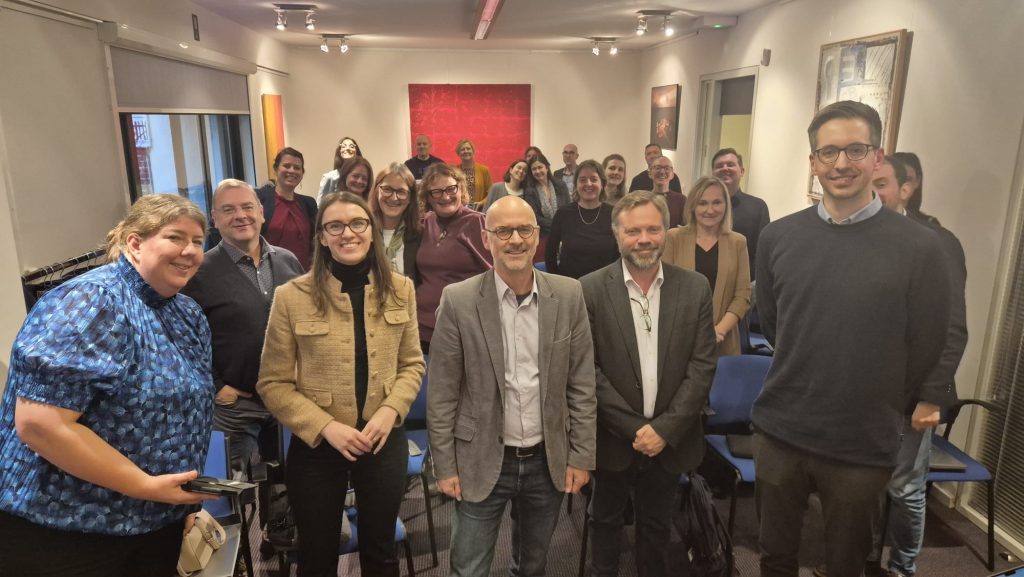After the ChallengeEU meeting in Brussels: we’re ready for the next steps!

First at the headquarters of the Fundación Comunidad Valenciana – Región Europea, and then at the Representation Office of the State of Baden-Württemberg in Brussels, members of the ChallengeEU team took part in a three-day working meeting (27-29 October). The aim was to strengthen collaboration between Work Packages, refine the delivery timetable, and align milestones for the months ahead. Work was carried out both in plenary and in dedicated working groups. This setup enabled joint strategic decisions and detailed task work within teams responsible for specific areas (including mobility, digitalisation, ChallengeEU Academy, ODEI, and communication & dissemination). Among the key topics addressed were a summary of activities undertaken in 2025 and planning for the next year of cooperation. The main priorities and expected results were also discussed. The session “How Do We Align Quality Processes” focused on standardising quality processes and document workflows. Day one also included a WP6 training on branding, communication, and dissemination – a practical module that clarified standards for content preparation, EU funding acknowledgements, brandbook compliance, and reporting of communication activities. It’s also worth adding that an opportunity to continue improving our internal communication will be the team workshops taking place on 3–4 November. Significant attention was devoted to mobility, the ChallengeEU Academy, the course catalogue, and the ODEI initiative. The teams worked on mobility frameworks, the educational offer, and solutions supporting inclusiveness (e.g., a virtual ODEI office and mentoring pathways). A crucial point of the agenda was an open Q&A with Daniel Hubner, the EACEA Project Officer, during which issues such as project activity reporting, formal expectations, and preparation for the mid-term report were discussed. Participants emphasised that such a meeting will help better align internal procedures with programme requirements and reduce the risk of inconsistencies in documentation. A valuable experience was also the meeting with Maria-Valerie Schegk from the YUFE Alliance, who shared with participants the good practices developed within the alliance she represents. She highlighted, among other things, the importance of documenting the alliance’s impact. The balance between group work and plenary discussions made it easier for teams to translate strategic decisions into day-to-day work plans. Further actions were agreed in the areas of: refining the shared infrastructure for events and stakeholder collaboration tools; streamlining approval and publication pathways for official alliance channels; and preparing for the mid-term report along with a review of indicators. The meeting concluded with a discussion on the alliance’s future and the announcement of initial plans for the ChallengeEU conference, which will take place in May in Olsztyn. The event will summarise the results achieved to date, strengthen cooperation with stakeholders, and showcase the impact of the alliance’s initiatives on regions and academic communities. A symbolic moment of the Brussels meeting was a minute of silence in tribute to the victims of the flood that struck Valencia a year ago. Although it was spontaneous and not part of the official programme, it was the best proof that the alliance is not only about creating joint study programmes or exchanging knowledge and experience. Above all, it is about building a community.

